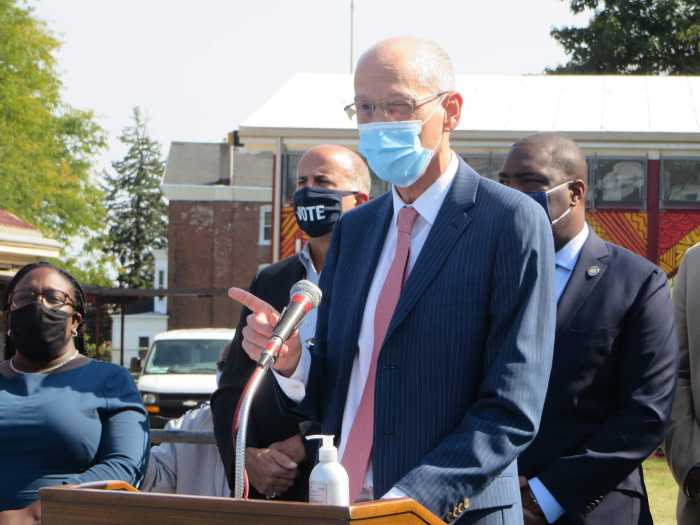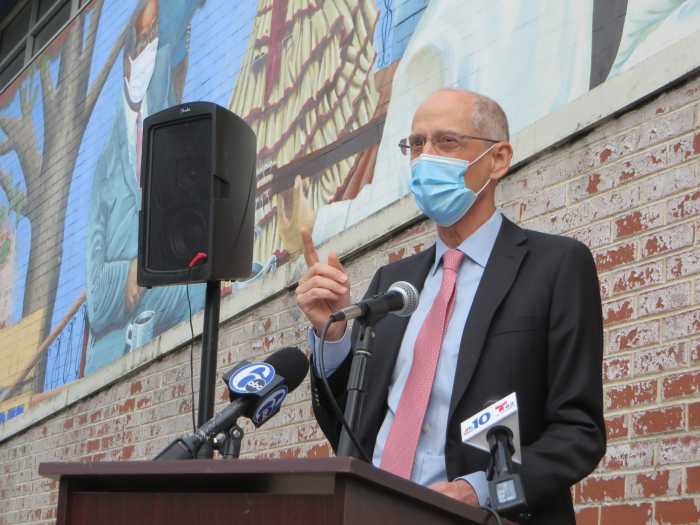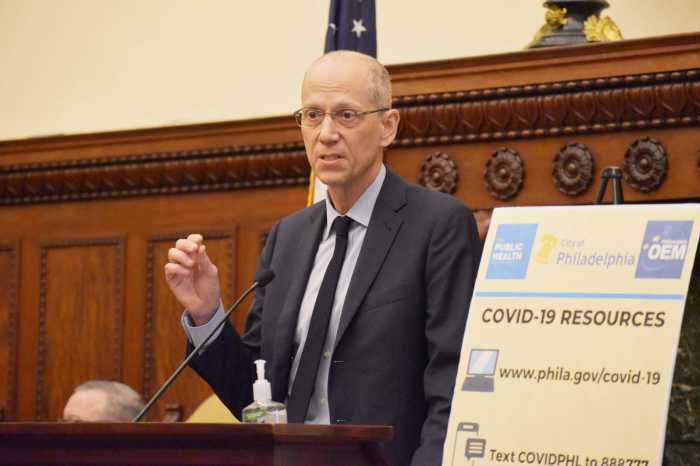Philadelphia could be entering a “dangerous period” in the novel coronavirus pandemic, Health Commissioner Thomas Farley said, with cases continuing to rise as the weather gets colder.
Respiratory viruses, like the flu, spread more easily in the dry fall air, when people are spending more time inside, and tend to peak in January or February.
“If COVID follows that pattern, we’re going to be having a difficult time over the next three to four months,” Farley said Tuesday.
Last week, Philadelphia averaged 189 cases a day, the city’s highest total since mid-May. Far more people are being tested, but the positivity rate registered at 4.8% for last week, much higher than September’s low of 2.8%.
In Pennsylvania as a whole, there were 8,723 cases reported last week, an increase of 1,325 from the prior week, and the positive test rate jumped from 3.9% to 4.3%.
There have also been spikes in New Jersey and across the United States, particularly in the Midwest and Mountain West.
“The fall resurgence is here,” Gov. Tom Wolf said Monday. “And while we must always take this deadly virus seriously, now is the time for all of us to double down on our efforts to keep ourselves and those around us safe.”
City officials reported eight COVID-19-related fatalities Tuesday, raising Philadelphia’s death toll to 1,849 since the start of the pandemic.
Deaths attributed to the virus have remained stable at about 15 a week, Farley said, though fatalities tend to lag behind increases in cases.
Restrictions on various activities have been eased in recent months, and Farley said the city would consider reimposing measures if there’s evidence that COVID-19 is spreading in a particular setting.
Right now, most people are catching the infection from household members and at gatherings at private homes, places the city does not have a lot of control over, Farley said.
There are increasing concerns about workplaces. Contact tracers interviewing people who tested positive last week in Philadelphia found that 17% were actively working in offices. That’s up from 7% to 9% last month.
Farley said he is concerned about unmasked office workers eating lunch together and encouraged people to work from home if possible.
However, he reiterated his belief that schools can reopen safely if staff and students wear masks and follow other safety rules.
It may be best for students’ long-term and short-term health to return to some sort of face-to-face interaction, Farley said.
The School District of Philadelphia recently announced its intentions to transition pre-K to 2nd grade students to a hybrid model at the end of November. Children would come for in-person classes two days a week. Families could also choose to continue remote learning.
Some aspects of the plan have to be approved by the Board of Education, which meets Thursday, and there is also a contract dispute involving the Philadelphia Federation of Teachers that looms over preparations.
About 50 schools in Philadelphia have brought students back into buildings, and 44 have reported COVID-19 cases among students or staff and 26 have instituted quarantines, officials said.
Farley said only at the Philadelphia School, a private, independent institution in Center City, has there been evidence that the virus has spread in the classroom. About 15 people at the school have tested positive, he added.
In other coronavirus news, the city recently opened a COVID-19 relief unit for nursing home residents who test positive for the virus.
The unit, housed on an unused floor of a current nursing home, is for infected residents whose facilities do not have enough room to keep them isolated. Officials have declined to disclose its location.
So far, one person has been admitted, Farley said.
State authorities on Tuesday announced that a 16-year-old cat from Cumberland County tested positive for the virus, the first household pet in Pennsylvania to have a confirmed case.
The cat came down with respiratory illness earlier this month and was euthanized due to its deteriorating condition, according to the state Department of Agriculture.
All pets that have been diagnosed with COVID-19 in the U.S. have lived with people who have had the virus, state officials said. They encouraged people who test positive to avoid contact with pets and other animals and secure alternative care for them if possible.
There is no evidence that animals play a significant role in spreading the virus to humans, the agriculture department said.

































